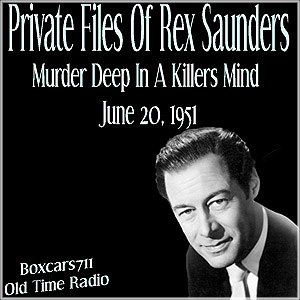Rogue's Gallery - Little Old Lady (Aired November 29, 1945)
++ Bob: Intro Richie Valens "Your Mine
Under the capable direction of Dee Englebach and accompanied by the music of Leith Stevens, Powell floated through his lines with the help of such competents as Lou Merrill, Gerald Mohr, Gloria Blondell, Tony Barrett, and Lurene Tuttle. Peter Leeds played Rogue's friend Eugor, an obscure play on names with Eugor spelling Rogue backwards. The gimmick in Rogue's Gallery was the presence of an alter ego, "Eugor," who arrived in the middle of the show to give Rogue enough information for his final deduction. Eugor was a state of mind, achieved when Rogue was knocked unconcious. During the summer of 1946, the show was billed as Bandwagon Mysteries, with a tip of the hat to the sponsor. In the summer of 1947, it was again revived on NBC Sundays for Fitch, with Barry Sullivan in the title role. Show Notes From The Old Time Radio Researcher's Group.
THIS EPISODE:
November 29, 1945. Mutual network. "Lovely Little Old Lady". Sponsored by: Fitch's Shampoo, Fitch's Shaving Cream. Conchita Morales hires Richard Rogue to get back her old love letters, while the title old lady invites Richard in for tea and knockout drops. A good story. Dee Englebach (producer, director), Dick Powell, Gerald Mohr, Jim Doyle (announcer), Leith Stevens (composer, conductor), Ray Buffum (writer), Peter Leeds. 32:08. Episode Notes From The Radio Gold Index.















































